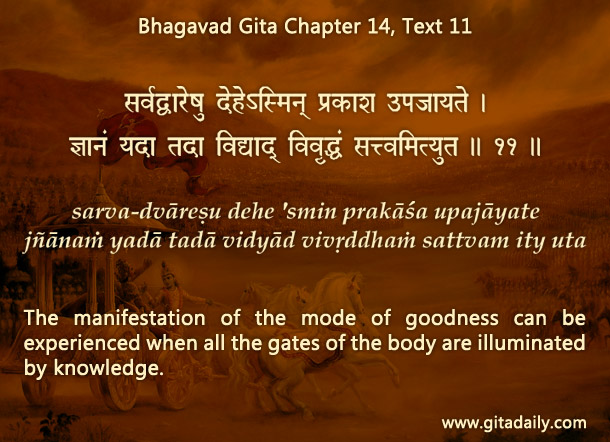Suppose we are walking at night on a dark road and our flashlight starts flickering. While the light is on, we will try to see as much as we can. When the light goes off, we will move cautiously, while trying to get the light back.
Similarly, in our spiritual journey, the illumination in our inner territory flickers frequently. Sometimes, we can see things as they are, understanding which of our desires to nurture and which to neglect. The Bhagavad-gita (14.11) indicates that this state characterizes the mode of goodness, wherein the doors of the senses are illuminated with the light of knowledge.
But the previous verse (14.10) cautions that the three modes compete constantly for supremacy. Whenever the lower modes of passion and ignorance trump the mode of goodness, our inner terrain becomes darkened, leaving us confused about which desire to pursue and which to purge.
Amidst such darkness, we need to act cautiously, without impulsively indulging in desires that allure. Additionally and more importantly, we can seek to turn on the inner light by turning to our indwelling Lord, Krishna, through prayer and meditation.
Krishna is reciprocal – he provides illumination to the extent we want it sincerely. He gauges our sincerity by both the intensity of our prayer for light amidst darkness and the consistency with which we use the light whenever it is available. During our life’s normal course, we need to take decisions in accordance with Krishna’s words. His guidance manifests through our spiritual mentors’ counsel as well as through our scripturally-shaped intelligence and conscience. When our actions show Krishna our sincerity, he reciprocates by bestowing his illuminating mercy, dissipating our inner darkness.
If we thus strive to see as much as we can while we can, Krishna helps us see whenever we can’t.
To know more about this verse, please click on the image
Explanation of article:
Podcast:


Leave A Comment